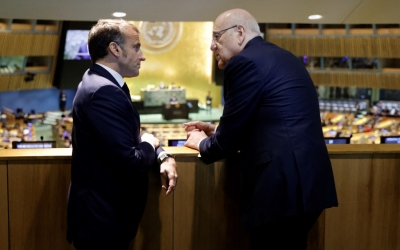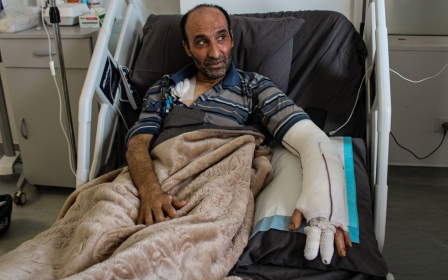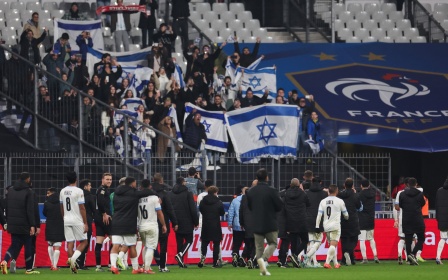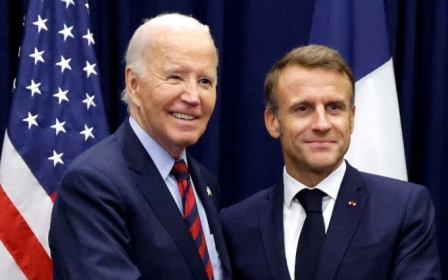French court orders release of Lebanese political activist jailed for 40 years
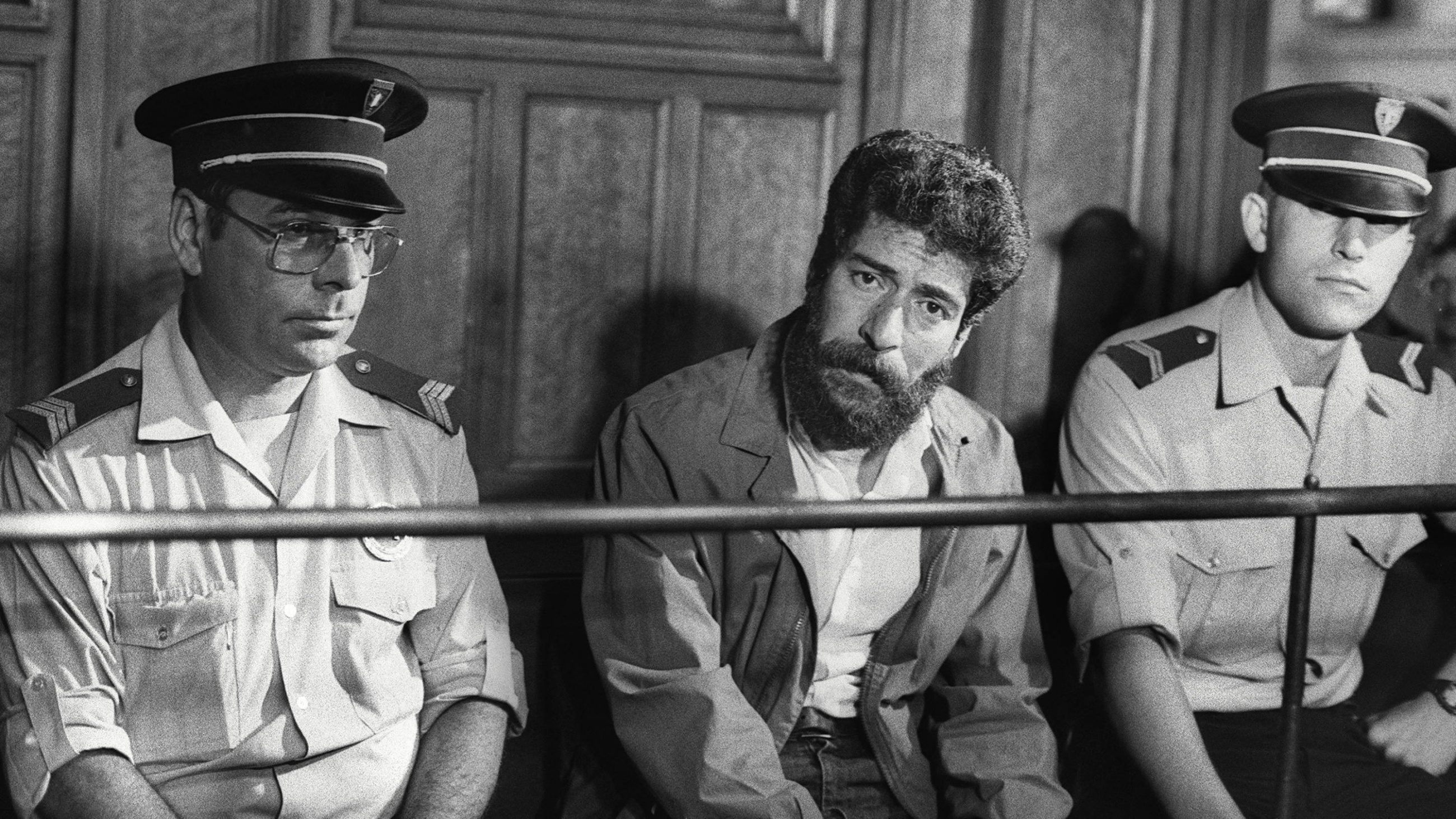
A French court on Friday ordered the release of Lebanese pro-Palestine activist Georges Ibrahim Abdallah, Europe's longest-held political prisoner, after 40 years in prison.
Abdallah, a former guerrilla with the Popular Front for the Liberation of Palestine (PFLP), was sentenced to life in prison in 1987 for his alleged involvement in the 1982 murders of US military attache Charles Robert Ray and Israeli diplomat Yacov Barsimantov.
The 73-year-old has appealed his conviction 11 times since becoming eligible for release in 1999.
The court said the communist activist would be released on 6 December on the condition that he leaves France and does not return, French anti-terror prosecutors said in a statement to AFP.
The prosecutors said they would appeal the court's decision, leaving the timing of Abdallah’s release uncertain.
New MEE newsletter: Jerusalem Dispatch
Sign up to get the latest insights and analysis on Israel-Palestine, alongside Turkey Unpacked and other MEE newsletters
The Lebanese activist, born to a Christian family in the northern village of Koubayat, has long maintained that he was not a "criminal" but "a fighter" who battled for the rights of Palestinians.
"The path I followed was dictated by the human rights violations perpetrated against Palestine," he told the judges during his latest appeal for release.
Wounded in 1978 during Israel's invasion of Lebanon, Abdallah, a secondary school teacher, joined the Marxist-Leninist PFLP, which carried out a series of plane hijackings during the 1960s and 1970s.
A year later, Abdallah, along with his brothers and cousins, founded his own pro-Palestine armed group, the Lebanese Armed Revolutionary Factions (LARF). The group had contact with other far-left armed outfits, including France's Action Directe, Italy's Red Brigades and the German Red Army Faction (RAF).
The Lebanese anti-Israeli Marxist group claimed responsibility for five attacks, including four in France in 1981 and 1982.
'Honour of being accused'
In 1986, Abdallah was sentenced in Lyon to four years in prison for criminal association and possession of weapons and explosives. He was tried the following year for complicity in the assassination of Ray and Barsimantov, as well as for the attempted assassination of a third American diplomat in 1984.
In the murder trial, one of the French secret services' sources was Abdallah's lawyer, Jean-Paul Mazurier, who later revealed that he was an intelligence agent.
In court, Abdallah denied the accusation but declared: "If the people did not entrust me with the honour of participating in these anti-imperialist actions that you attribute to me, at least I have the honour of being accused of them."
Abdallah was then sentenced to life in prison, a far more severe punishment than the 10-year sentence sought by the attorney general.
His lawyer, Jacques Verges, who previously defended clients such as Venezuelan militant Carlos the Jackal, saw the verdict as "a declaration of war".
A support committee was immediately formed, demanding Abdallah's "immediate release".
The longest-serving prisoner in France has never expressed regret for his actions.
"He is doing well intellectually. He is an activist. He sticks to his guns, reads a lot and keeps himself very informed about what is happening in the Middle East. People write to him from all over the world," his lawyer, Jean-Louis Chalanset, told AFP in 2022.
'A political victory'
"I am the victim of a political decision," Abdallah said shortly before the verdict on Friday.
Washington has consistently opposed Abdallah's release, while Lebanese authorities have repeatedly called for his freedom.
Since 1999, the year he became eligible for release, all his parole requests have been rejected except one in 2013, when he was granted release on the condition that he be expelled from France.
When his request was granted that year, then-US Secretary of State Hillary Clinton contacted French Foreign Minister Laurent Fabius, saying in diplomatic cables revealed by WikiLeaks: "Although the French government has no legal authority to overturn the Court of Appeal's decision, we hope French officials might find another basis to challenge the decision's legality."

French Interior Minister Manuel Valls then refused to proceed with the order and Abdallah remained in jail.
Chalanset told AFP that the court's decision on Friday is not contingent on the government issuing such an order, calling it "a legal and a political victory".
However, under French law, an appeal can suspend the court's decision, effectively deferring its execution.
Over the years, Abdallah's fate has mobilised activists close to the French Communist Party and the far left, who have accused successive governments of employing relentless tactics regarding the political prisoner's release.
Several communist municipalities have even made him an honorary citizen, and protests have frequently been held outside his prison in Lannemezan, in southwestern France.
"Georges Ibrahim Abdallah is the victim of a state justice that shames France," Nobel Prize-winning author Annie Ernaux said in a piece in the communist daily L'Humanite last month.
The Human Rights League, a leading French human rights NGO, has long maintained that Abdallah’s continued imprisonment violates human rights.
Middle East Eye delivers independent and unrivalled coverage and analysis of the Middle East, North Africa and beyond. To learn more about republishing this content and the associated fees, please fill out this form. More about MEE can be found here.


